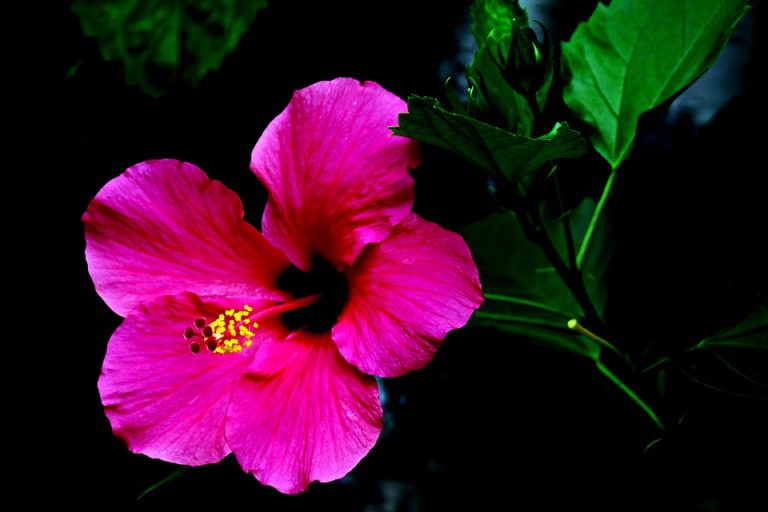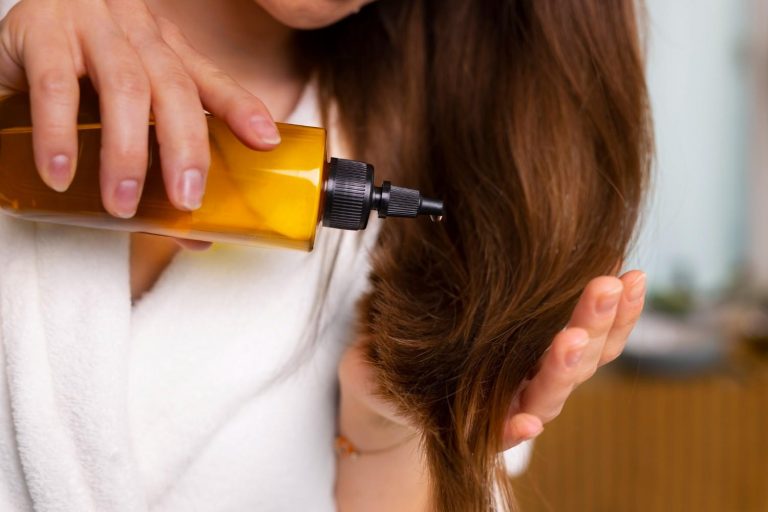Did you know that nearly 40% of women experience some form of hair loss by the age of 40? It’s a startling statistic and one that can shake a woman’s confidence to its core. The societal pressure to have thick, luscious locks can be overwhelming. But what if I told you that nature might just have the answer? That’s right! There are herbs out there that could help support hair growth and, in turn, boost your confidence. Let’s dive into five of these herbal wonders and see how they can help you reclaim your crowning glory.
1. Rosemary
Why It Works
Rosemary isn’t just a culinary favorite; it’s also a powerhouse for hair growth. A study published in Skinmed in 2015 found that rosemary oil was just as effective as minoxidil, a common hair growth treatment, in promoting hair regrowth in individuals with androgenetic alopecia (hair loss). The oil stimulates blood circulation to the scalp, which is crucial for hair follicles to thrive.
How to Use It
You can use rosemary in several ways:
-
Essential Oil: Mix a few drops of rosemary essential oil with a carrier oil, like coconut or jojoba oil, and massage it into your scalp. Aim for a 10-15 minute massage, then leave it on for at least 30 minutes before washing it out.
-
Herbal Rinse: Brew a strong tea using fresh or dried rosemary leaves, let it cool, and use it as a final rinse after shampooing.
Pros and Cons
Pros: Natural, easy to use, and has additional benefits like improved scalp health.
Cons: Some people may experience skin irritation, so a patch test is recommended.
2. Peppermint
Why It Works
Peppermint isn’t just great in your morning tea; its essential oil has been shown to promote hair growth. A study published in Toxicological Research in 2014 found that peppermint oil significantly increased the number of hair follicles and their depth. The invigorating menthol in peppermint also helps with blood circulation, which can stimulate hair growth.
How to Use It
-
Oil Application: Combine a few drops of peppermint oil with a carrier oil and apply it to your scalp. Like rosemary, a gentle massage can enhance the effects.
-
Shampoo Boost: Add a few drops of peppermint oil to your regular shampoo for an invigorating wash.
Pros and Cons
Pros: Refreshing scent, stimulates scalp circulation, and is easy to incorporate into your routine.
Cons: The strong scent may not be for everyone, and it can be irritating if used excessively.
3. Saw Palmetto
Why It Works
Saw palmetto is a lesser-known herb that’s gaining traction in the hair care world. Research suggests that it may inhibit the production of dihydrotestosterone (DHT), a hormone linked to hair loss. A study in the Journal of Alternative and Complementary Medicine in 2012 reported that saw palmetto could help in treating androgenetic alopecia, particularly in women.
How to Use It
-
Supplements: Saw palmetto is widely available in capsule form. Consult a healthcare provider for the appropriate dosage.
-
Topical Solutions: Some hair care products now include saw palmetto extract, so look for those if you prefer topical applications.
Pros and Cons
Pros: Potentially effective for hormonal hair loss, easy to find in supplement form.
Cons: Not everyone may respond, and long-term effects are still under investigation.
4. Nettle
Why It Works
Nettle is a nutritional powerhouse, rich in vitamins A, C, K, and several B vitamins, along with minerals like iron and silica—nutrients essential for hair health. A study in the International Journal of Trichology in 2016 indicated that nettle extract may help in managing hair loss by blocking DHT.
How to Use It
-
Tea: Drinking nettle tea can provide you with its benefits from the inside out. Steep dried nettle leaves in hot water for about 10 minutes.
-
Hair Rinse: Use nettle-infused water as a final rinse after shampooing to help strengthen your hair.
Pros and Cons
Pros: Nutrient-rich and can be consumed or applied topically.
Cons: Some people might find the taste of nettle tea unappealing.
5. Ginseng
Why It Works
Ginseng, particularly Korean red ginseng, is known for its adaptogenic properties, which can help your body manage stress—a major contributor to hair loss. A study in the Journal of Ginseng Research in 2013 found that ginseng extract promoted hair growth in mice, and while human studies are still limited, the results are promising.
How to Use It
-
Supplements: Available in various forms, including capsules, powders, and teas. Always check with a healthcare provider for proper dosing.
-
Topical Treatments: Look for shampoos and conditioners that contain ginseng extract.
Pros and Cons
Pros: May help with hair growth and overall well-being due to its adaptogenic properties.
Cons: More research is needed on its efficacy specifically for hair loss in humans.
FAQs
1. How long does it take to see results from these herbs?
Results can vary widely. Some users notice improvements within a few weeks, while others may take several months. Consistency is key!
2. Can I mix these herbs together?
Absolutely! Many people create a blend of essential oils for scalp massages. Just ensure that you’re not mixing too many potent oils at once to avoid irritation.
3. Are there any side effects?
While most herbs are generally safe, some individuals may experience allergic reactions or skin irritation. Always conduct a patch test before applying any new product to your scalp.
4. Should I consult a doctor before starting herbal treatments?
Yes, especially if you have underlying health conditions or are pregnant. It’s always a good idea to consult a healthcare provider before making significant changes to your health routine.
Conclusion
Navigating the world of hair growth can feel overwhelming, especially with so many products claiming to be the next best thing. But sometimes, the answers lie in nature. Rosemary, peppermint, saw palmetto, nettle, and ginseng are just a few herbs that can support hair growth and boost your confidence.
While the research is promising, remember that individual results will vary, and what works wonders for one person might not work for another. It’s essential to approach hair care holistically—combine these herbs with a well-balanced diet, proper hydration, and stress management for the best results.
And let’s be real: confidence comes from within. While these herbs can support your hair health, remember that true beauty shines from self-acceptance and self-love. So whether your hair is thick, thin, long, or short, embrace it, and let it be a part of your unique story.
This article is for educational purposes only and is not a substitute for professional medical advice. Always consult a qualified healthcare provider before making changes to your health routine.
References
-
N. K. (2015). Efficacy of Rosemary Oil in the Treatment of Androgenetic Alopecia. Skinmed. Retrieved from https://www.skinmedjournal.com/
-
H. H. (2014). The Effect of Peppermint Oil on Hair Growth in Mice. Toxicological Research. Retrieved from https://www.toxicolres.org/
-
J. K. (2012). The Efficacy of Saw Palmetto in the Treatment of Androgenetic Alopecia: A Randomized Double-Blind Study. Journal of Alternative and Complementary Medicine. Retrieved from https://www.liebertpub.com/
-
R. A. (2016). The Role of Herbal Extracts in Hair Loss Management. International Journal of Trichology. Retrieved from https://www.ijtrichology.com/
-
S. J. (2013). Effects of Ginseng on Hair Growth: A Study on Mice. Journal of Ginseng Research. Retrieved from https://www.jginsengres.com/
Get Your FREE Natural Health Guide!
Subscribe now and receive our exclusive ebook packed with natural health tips, practical wellness advice, and easy lifestyle changes, delivered straight to your inbox.





